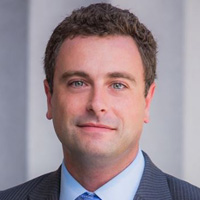Updating Your Estate Plan? Don’t Make These Top Mistakes
You’re making the effort to stay on top of your estate plan. That’s great! Now don’t mess it up. Here is how to avoid five of the biggest blunders people often make.


Profit and prosper with the best of Kiplinger's advice on investing, taxes, retirement, personal finance and much more. Delivered daily. Enter your email in the box and click Sign Me Up.
You are now subscribed
Your newsletter sign-up was successful
Want to add more newsletters?

Delivered daily
Kiplinger Today
Profit and prosper with the best of Kiplinger's advice on investing, taxes, retirement, personal finance and much more delivered daily. Smart money moves start here.

Sent five days a week
Kiplinger A Step Ahead
Get practical help to make better financial decisions in your everyday life, from spending to savings on top deals.

Delivered daily
Kiplinger Closing Bell
Get today's biggest financial and investing headlines delivered to your inbox every day the U.S. stock market is open.

Sent twice a week
Kiplinger Adviser Intel
Financial pros across the country share best practices and fresh tactics to preserve and grow your wealth.

Delivered weekly
Kiplinger Tax Tips
Trim your federal and state tax bills with practical tax-planning and tax-cutting strategies.

Sent twice a week
Kiplinger Retirement Tips
Your twice-a-week guide to planning and enjoying a financially secure and richly rewarding retirement

Sent bimonthly.
Kiplinger Adviser Angle
Insights for advisers, wealth managers and other financial professionals.

Sent twice a week
Kiplinger Investing Weekly
Your twice-a-week roundup of promising stocks, funds, companies and industries you should consider, ones you should avoid, and why.

Sent weekly for six weeks
Kiplinger Invest for Retirement
Your step-by-step six-part series on how to invest for retirement, from devising a successful strategy to exactly which investments to choose.
Establishing an estate plan is extremely important. As life changes, it is necessary to update your plan to fit new circumstances. Whether it’s a change in domicile, the death of a family member, new grandchildren or a significant change in assets, it is important to make sure you adjust your estate plan accordingly.
However, when making changes, it’s crucial to avoid the following all-too-common mistakes, which can lead to headaches to you and your family down the road.
1. Focusing on updating a will or trust but forgetting to update ancillary documents
When updating an estate plan, people tend to focus on updating their wills and trusts without taking time to have their powers of attorney, health care directives or nominations of guardians reviewed and updated as well. This tunnel vision prevents them from completing a full update to their estate planning.
From just $107.88 $24.99 for Kiplinger Personal Finance
Become a smarter, better informed investor. Subscribe from just $107.88 $24.99, plus get up to 4 Special Issues

Sign up for Kiplinger’s Free Newsletters
Profit and prosper with the best of expert advice on investing, taxes, retirement, personal finance and more - straight to your e-mail.
Profit and prosper with the best of expert advice - straight to your e-mail.
Yes, these ancillary documents are good forever, but that doesn’t mean they should not be periodically reviewed and updated. Older templates become outdated. Addresses, phone numbers or even the agents themselves might require modification.
I recently had a client say his power of attorney was fine in its current form only to find out that the agents he had appointed years ago (his brother and sister) had since passed away. Clients should have their entire estate plan reviewed and not just focus on the will or trust.
2. Using flawed reasoning when selecting agents to act on your behalf
I have many clients who select their executors, trustees and other agents by trying to appoint all their children together or appointing agents by age or profession instead of who is best suited to serve.
The ideal candidate needs to live in close proximity to you and have an ample amount of time to address issues you may need. That person may not be your child who is a doctor with a family, because they might not have enough free time to help.
Additionally, unless you have an incredibly close family, appointing co-agents or all of your children is also not advisable. Such action can add to the administration time it takes to transfer your assets. It could also lead to a deadlock due to differing opinions or different time investments.
It might be slightly counterintuitive, but one person who is organized, efficient and has the time and capability to handle these matters is most often better than three others.
3. Not reviewing your financial accounts and investments in conjunction with updating your estate plan
An attorney can update an estate plan, but people should also take the time to meet with a financial adviser and have their investments and financials reviewed as well. Most people are so focused on having their estate plan updated that they forget to get a checkup on their financial accounts and remember to make beneficiary designations.
Each year I perform probate services on the estates of many people who spent the time and money having trusts created only to find that when they pass, they forgot to put beneficiary designations on their financial accounts held outside of the trust. Now, beneficiaries must go through the time and expense of probate, when preventing that issue was one of the primary plan objectives. The vehicle is important, but make sure what is inside is periodically checked as well.
4. Forgetting to update an estate plan when moving to another state
Estate planning documents drafted out-of-state, as long as they were drafted with the formalities and requirements of that state, will be effective in all 50 states. That being said, having out-of-state documents can unnecessarily complicate trust or estate administration, or the ability to exercise powers of attorney or health care directives.
Clients are always advised to update their plans when they move to another state to ensure the plan functions correctly. They might be legally effective, but there is no good reason to have a slew of estate planning documents from Michigan when you left that state five years ago and have no further connection to that state.
5. Forgetting to create an asset cheat sheet or failing to keep that list updated
Most individuals, as they get older, accumulate a great deal of different assets and investments. Real property is easy to find, but accounts are not so easy to locate. It is not uncommon for someone to have stock and bond investments, life insurance, annuities, securities or other investments with many different institutions. I find it rare that someone has all of their investments with one company.
No one knows your financials like you do. When you update your estate plan, remember to create a list of your accounts and assets and update that list as things change. It is not important to put a value to the account, as those change over time. Make sure to include the name and location of the account and the last four digits of the account number. It is one of the most important things you can do for your beneficiaries to avoid an unnecessary treasure hunt for your assets when you’re gone.
As you spend the time and money to accomplish updates to your estate plan, you want to make sure you make the most complete revisions. When accomplishing changes, if you avoid the above mistakes, it will ensure that your plan is property updated and will not cause any unnecessary complications in the future.
Profit and prosper with the best of Kiplinger's advice on investing, taxes, retirement, personal finance and much more. Delivered daily. Enter your email in the box and click Sign Me Up.

Richard Ricciardi is an estate planning attorney and partner at Powell, Jackman, Stevens & Ricciardi, P.A. in Fort Myers, Fla. Richard obtained his Master of Laws Degree in estate planning and elder law, which required extensive additional education tailored specifically to advanced issues in estate planning, including business succession planning and taxation issues affecting estate transfers. Richard represents clients with a variety of debt issues, personal representatives, trustees, beneficiaries in probate or trust administration and singles and couples in preparing estate planning documents.
-
 Quiz: Do You Know How to Avoid the "Medigap Trap?"
Quiz: Do You Know How to Avoid the "Medigap Trap?"Quiz Test your basic knowledge of the "Medigap Trap" in our quick quiz.
-
 5 Top Tax-Efficient Mutual Funds for Smarter Investing
5 Top Tax-Efficient Mutual Funds for Smarter InvestingMutual funds are many things, but "tax-friendly" usually isn't one of them. These are the exceptions.
-
 AI Sparks Existential Crisis for Software Stocks
AI Sparks Existential Crisis for Software StocksThe Kiplinger Letter Fears that SaaS subscription software could be rendered obsolete by artificial intelligence make investors jittery.
-
 Social Security Break-Even Math Is Helpful, But Don't Let It Dictate When You'll File
Social Security Break-Even Math Is Helpful, But Don't Let It Dictate When You'll FileYour Social Security break-even age tells you how long you'd need to live for delaying to pay off, but shouldn't be the sole basis for deciding when to claim.
-
 I'm an Opportunity Zone Pro: This Is How to Deliver Roth-Like Tax-Free Growth (Without Contribution Limits)
I'm an Opportunity Zone Pro: This Is How to Deliver Roth-Like Tax-Free Growth (Without Contribution Limits)Investors who combine Roth IRAs, the gold standard of tax-free savings, with qualified opportunity funds could enjoy decades of tax-free growth.
-
 One of the Most Powerful Wealth-Building Moves a Woman Can Make: A Midcareer Pivot
One of the Most Powerful Wealth-Building Moves a Woman Can Make: A Midcareer PivotIf it feels like you can't sustain what you're doing for the next 20 years, it's time for an honest look at what's draining you and what energizes you.
-
 I'm a Wealth Adviser Obsessed With Mahjong: Here Are 8 Ways It Can Teach Us How to Manage Our Money
I'm a Wealth Adviser Obsessed With Mahjong: Here Are 8 Ways It Can Teach Us How to Manage Our MoneyThis increasingly popular Chinese game can teach us not only how to help manage our money but also how important it is to connect with other people.
-
 Looking for a Financial Book That Won't Put Your Young Adult to Sleep? This One Makes 'Cents'
Looking for a Financial Book That Won't Put Your Young Adult to Sleep? This One Makes 'Cents'"Wealth Your Way" by Cosmo DeStefano offers a highly accessible guide for young adults and their parents on building wealth through simple, consistent habits.
-
 Global Uncertainty Has Investors Running Scared: This Is How Advisers Can Reassure Them
Global Uncertainty Has Investors Running Scared: This Is How Advisers Can Reassure ThemHow can advisers reassure clients nervous about their plans in an increasingly complex and rapidly changing world? This conversational framework provides the key.
-
 I'm a Real Estate Investing Pro: This Is How to Use 1031 Exchanges to Scale Up Your Real Estate Empire
I'm a Real Estate Investing Pro: This Is How to Use 1031 Exchanges to Scale Up Your Real Estate EmpireSmall rental properties can be excellent investments, but you can use 1031 exchanges to transition to commercial real estate for bigger wealth-building.
-
 Should You Jump on the Roth Conversion Bandwagon? A Financial Adviser Weighs In
Should You Jump on the Roth Conversion Bandwagon? A Financial Adviser Weighs InRoth conversions are all the rage, but what works well for one household can cause financial strain for another. This is what you should consider before moving ahead.